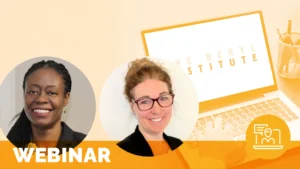The Importance of Patient and Peer Feedback to Staff Recognition

Donna Pritchard, DNP, MSN, FPN-BC | VP, Clinical Services, CipherHealth
In this session, CipherHealth’s VP of Clinical Services, Donna Pritchard will explore how bedside staff continue to suffer and need supportive intervention to ensure their physical and emotional wellness are preserved. A strong staff wellbeing strategy that recognizes staff contributions and needs is essential. She will explain how rounding with purpose, while listening to the voice of the patient and providing an opportunity to recognize a staff member, provides powerful insight into what is most important to patients and is often reflected in their recognition of excellent care. Finally, she will unpack the importance of a staff engagement strategy that improves job satisfaction, enhances retention, and, perhaps most importantly, improves patient outcomes.
Related content
-
 Culture & Leadership | Quality & Clinical Excellence
Culture & Leadership | Quality & Clinical ExcellenceEmpowering Healthcare: Understanding and Supporting Trans and Non-Binary Patients
Join Lou Weaver for a webinar on understanding trans and non-binary individuals and their healthcare needs. The session will cover specialized healthcare considerations, Standards of Care, and the impact of Social Determinants of Health on this population. Participants will explore the differences between sexual orientation (SO) and gender identity (GI), the importance of related data,
Learn more -
 Culture & Leadership | Quality & Clinical Excellence
Culture & Leadership | Quality & Clinical ExcellenceThe Value Case for Improving Human Experience in Healthcare: A Conversation with Brian Carlson and Jennifer Carron
On the heels of the tenth anniversary release of PX Journal, Jason Wolf sits down with Brian Carlson, Vice President of Patient Experience at Vanderbilt University Medical Center and Jennifer Carron, Patient Experience Officer at BJC Healthcare to discuss their new co-authored article, “Investing in the Bottom Line: The Value Case for Improving Human Experience
Learn more -
 Culture & Leadership | Staff & Provider Engagement
Culture & Leadership | Staff & Provider EngagementUsing Gratitude to Elevate the Human Experience
In this webinar, the presenters will share how they developed a Gratitude Report as a part of Southcoast Health’s grateful patient program using positive patient feedback, comments, and stories to recognize caregivers that embody the values and service behaviors. The Gratitude Report is a list of employees’ names that have been mentioned by patients and
Learn more
